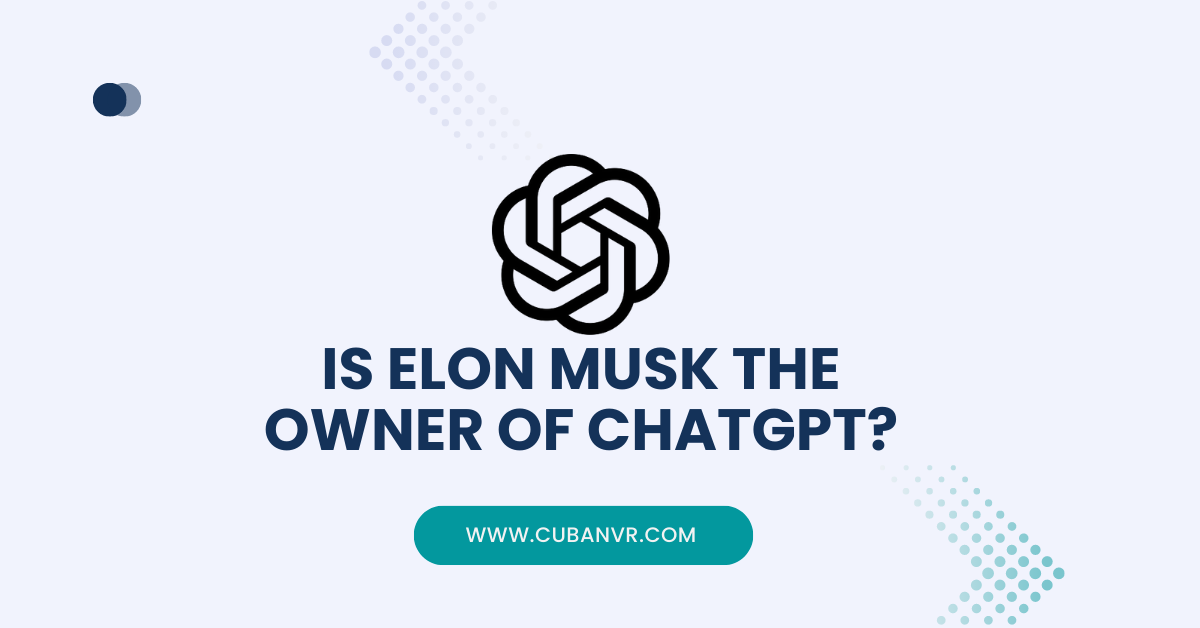Much speculation surrounds the ownership of the widely acclaimed AI chatbot, ChatGPT, and its connection to Elon Musk, the renowned figure in artificial intelligence, and his previous association with OpenAI, the company responsible for its creation. Recent events have prompted inquiries into Musk’s present involvement with the organization.
Is Elon Musk founder of ChatGPT and has Elon Musk invested in ChatGPT? Let’s find out…
Before that, let’s take a brief look at the meaning of ChatGPT and how it works.
What is ChatGPT?
OpenAI, a prominent artificial intelligence research laboratory, has developed ChatGPT, an AI-powered chatbot that employs deep learning algorithms to generate remarkably human-like responses to natural language prompts. Through extensive training on vast internet text data, the language model gains the ability to comprehend and generate text across a wide spectrum of styles and purposes. Its versatility allows for diverse applications, including chatbots, language translation, and even creative writing.
To enhance its dialogue capabilities, ChatGPT is optimized using Reinforcement Learning with Human Feedback (RLHF), a technique that employs human demonstrations and preference comparisons to guide the model toward desired behaviors.
How does ChatGPT work?
ChatGPT, an advanced language model developed by OpenAI, harnesses deep learning algorithms to create human-like responses when presented with natural language prompts. It’s extensive training in vast internet text data enables it to comprehend and generate text in diverse styles and for various purposes. Whenever a user inputs a prompt or query, ChatGPT leverages its understanding of language patterns and context to produce a response that is not only relevant and accurate but also coherent. The model’s remarkable flexibility makes it suitable for a wide array of applications, including chatbots, language translation, and even creative writing.
Benefits of ChatGPT
There are numerous advantages to utilizing ChatGPT, including:
1. User-Friendly: ChatGPT offers a seamless sign-up process and ease of use, available to everyone free of charge.
2. Versatility: ChatGPT’s wide range of applications encompasses chatbots, language translation, and creative writing, making it a highly versatile tool.
3. Natural Language Processing: By leveraging natural language processing algorithms, ChatGPT exhibits an intuitive and user-friendly interface.
4. Accuracy: ChatGPT excels in delivering relevant and coherent responses, showcasing high levels of accuracy.
5. Speed: With its exceptional response generation speed, ChatGPT proves valuable for businesses and individuals dealing with large volumes of text.
6. Learning Capabilities: Designed to learn from human feedback, ChatGPT continuously improves its responses over time, enhancing its accuracy and overall effectiveness.
See also: What Does GPT Stand For In ChatGPT? Explained
FAQs
What does Elon Musk own?
Elon Musk is a co-founder of six companies, which include Tesla, an electric car manufacturer, SpaceX, a rocket producer, and Boring Company, a tunneling startup. He holds approximately 23% ownership in Tesla through stocks and options, but he has also pledged over half of his shares as collateral for loans.
How much money did Elon Musk start with?
In 1995, Elon Musk co-founded Zip2 with a loan of $28,000 from his father. By 1999, he had earned $22 million from the sale of Zip2 to Compaq.
Who created ChatGPT?
ChatGPT was created by OpenAI, an AI research company. Originally established as a nonprofit organization in 2015, OpenAI transitioned to a for-profit entity in 2019. The company’s CEO, Sam Altman, is also a co-founder of OpenAI.
Conclusion
OpenAI ChatGPT is not owned by any individual but rather by OpenAI, a company co-founded in 2015 by Sam Altman and Elon Musk. As of now, Elon Musk is no longer associated with OpenAI, and the current CEO is Sam Altman.
However, Elon Musk served as one of the original co-chairs of OpenAI, the company responsible for ChatGPT, a tool that was recognized as the fastest-growing app ever, as reported in a USB study.
